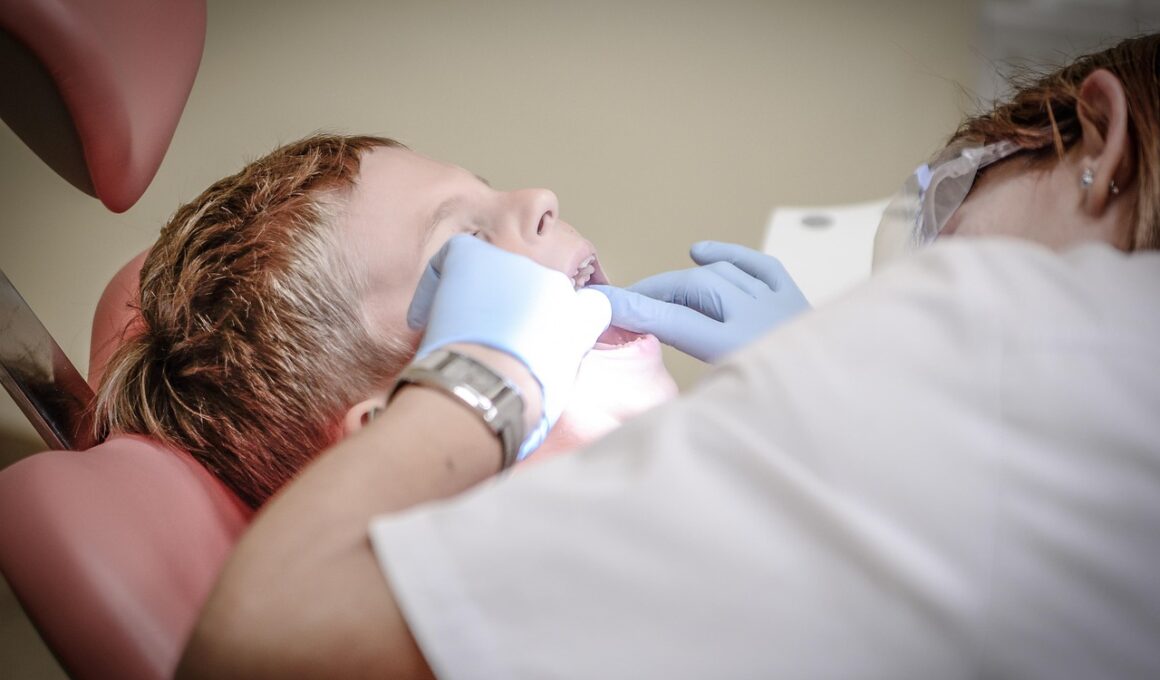When to Consider Professional vs. Home Dental Care: Cost Implications
Dental care for dogs is crucial for their overall health and well-being. Owners often grapple with the expense involved, whether through professional services or home care. Understanding when to consider each option can save money and ensure the best care for pet teeth. Professional dental cleanings generally range from $200 to $800, depending on the extent of cleaning needed. This option provides deep cleaning, which can remove tartar that home care may not address effectively. There’s also the risk of serious dental issues that can arise if neglect continues. Nonetheless, for some, this cost can be prohibitive, leading them to opt for home care methods. This approach involves brushing dogs’ teeth regularly, using dental chews, or applying dental gels to reduce buildup. These can be more economical; however, it might not replace the need for a vet’s expertise. While home care can supplement regular veterinary visits, it is vital to consult veterinarians for guidance on effective homecare practices. Balancing these options is essential to maintain your dog’s dental health without breaking the bank.
Evaluating Professional Dental Cleaning Costs
Professional treatments often include comprehensive oral health assessments. Various factors can affect the expenses of dental procedures, such as the veterinarian’s expertise and the pet’s unique needs. In many cases, unforeseen complications may arise during the cleaning process, leading to additional costs. For instance, if periodontal disease is detected, it might require further treatments that can increase the overall bill. Moreover, some veterinary practices offer bundles for dental care that may be cost-effective for regular checkups and cleanings. It is always advisable to review the entirety of the cost up front to avoid surprises. Pet insurance may also help alleviate some costs associated with professional cleanings. Owners should reach out to their insurance providers to understand coverage specifics. In addition, taking advantage of seasonal promotions or discounts at veterinary clinics can prove beneficial. However, certain affordable preventive care may not compensate for the extensive care offered by professionals. Finding a reputable veterinary clinic can also significantly impact both the quality and price of dental services. Thus, weighing these factors before proceeding is vital.
Home dental care can be significantly cheaper compared to professional treatments, making it an attractive option for many pet owners. Ultimately, the goal is to maintain oral hygiene and prevent severe dental issues. Regular brushing, using toothbrushes designed for dogs, and introducing dental-friendly treats contribute positively to oral care. Owners can also explore various dental care products available in pet stores aimed at maintaining oral health. These range from dental rinses to flavored toothpaste specifically designed for dogs. The efficacy of these practices largely depends on consistency. By establishing a routine that incorporates these methods, many owners find success in managing their dogs’ dental health effectively. Nevertheless, it’s crucial to monitor dogs for any signs of gum disease or dental decay, which may necessitate professional intervention sooner than expected. If uncertain about how to implement home care, consulting with a veterinarian can provide insights tailored for your dog’s specific needs. This proactive approach can help mitigate potential costs down the line, paving the way for better overall health and fewer expensive treatments in the long run.
Long-Term Cost Savings with Preventive Care
Investing in regular preventive dental care can lead to substantial long-term savings. Preventive measures are often less expensive than treatment after serious dental issues arise. For instance, a single professional cleaning can thwart the development of periodontal disease, which can incur costs upwards of thousands. With regular, preventative maintenance, if detected early through regular checkups, other issues may never require costly treatments. Formulating a structured routine for brushing and regular check-ups is conducive to maintaining optimal dental health. The financial benefits of preventing problems compare favorably to the costs associated with addressing advanced dental issues later on. In addition, maintaining a dog’s dental health can significantly enhance their overall quality of life. Dogs suffering from oral pain can exhibit behavioral changes that may also lead to additional expenses, such as behavioral training or treatments for stress or anxiety. Therefore, the strategic implementation of both professional and home care options cultivates a holistic approach to pet health. Dogs not only experience an improved quality of life, but owners also enjoy peace of mind knowing they are saving money while ensuring optimal health.
Another consideration is the timing of veterinary visits corresponding to your dog’s dental health. Some owners may capitalize on dental awareness months during which promotions for senior consultations might occur. Such strategic planning can afford significant discounts while ensuring that necessary dental care continues without interruption. Working with a trusted veterinarian provides insight into how often to schedule appointments based on your dog’s size, age, and health history. These recommendations can vary, making it necessary to curate a personalized dental care plan specific to your pet’s needs. Also, bear in mind the diet plays a pivotal role in maintaining healthy teeth. A dental diet enriched with proteins and lower sugars helps prevent dental issues. On the other hand, feeding your dog human food often leads to health issues, including greater dental plaque buildup. As a result, pet owners might face elevated long-term costs related to dental ailments. Balancing these consequences through strategic food choices and timely veterinary consultations makes for a robust approach to canine dental care. Thus, maintaining optimal cost-effectiveness is achievable.
Decision Factors for Home Vs. Professional Care
Choosing between home dental care and professional cleaning often comes down to several subjective factors. One of the most noteworthy considerations is your dog’s overall health; some conditions may require professional assessments more frequently. Understanding your financial situation also plays a vital role in this decision process. If you cannot regularly afford professional dental visits, it becomes essential to establish a strong home care routine. Additionally, the comfort level with performing dental cleanings at home can deter many owners. Many dogs resist having their mouths touched, complicating at-home efforts. On the other hand, selecting the dental products may require time and research, meaning not every owner is equipped with knowledge about proper techniques. Furthermore, the owner’s commitment to learning and developing skills over time derives results through consistent practice. Acknowledging these nuances assists owners in determining the most effective method for their canine companion’s dental needs. Ultimately, finding a balance where home care is complemented by professional assessments can create an effective dentition strategy for overall wellness.
In conclusion, deciding between home dental care versus professional cleaning requires careful consideration of numerous components. Each option has its own cost implications, and one approach may not be suited to all dogs. The upfront costs of professional dental care can deter many; however, the savings garnered from preventive measures is invaluable. On the flip side, while home care can mitigate expenses, consistency and commitment are key to achieving long-term success. It is important to review your budget carefully and factor in potential long-term costs that may arise from neglecting necessary care. Periodic veterinary consultations ensure that you remain informed about best practices and any changes in your dog’s needs over time. By weighing all aspects and consulting your veterinarian, pet owners can confidently decide which method aligns with their financial capabilities and your dog’s health requirements. Ultimately, a hybrid approach may yield the best outcomes for oral health and financial management. Therefore, prioritizing dog dental care, regardless of the method, reflects a commitment to maintaining your pet’s health—a decision that is undoubtedly worth any investment.
For More Information
For further information on dog dental care, visit the AKC’s guide to ensure you provide the best dental hygiene for your furry friend. This ranged perspective can assist in navigating the complexities involved in your choices. Additionally, consulting with a veterinary professional can equip you with personalized advice tailored to your dog’s unique situation. Researching products and methods, reading reviews, and learning commonly used terminology related to pet dental care also provide a strong foundation for your dental care strategy. Various communities and online forums serve as valuable resources when exchanging experiences and seeking support with dental care for pets. Engaging with other pet owners can provide practical advice and support specific to various breeds and ages. Lastly, browsing literature from veterinary dental specialists offers comprehensive insight into maintaining excellent canine dental health. A round-up of this information empowers owners to make informed decisions about affordable and effective dental care, significantly enhancing overall well-being and happiness for both pets and their owners.


